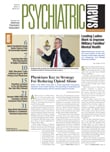On April 25 the Supreme Court denied certiorari to Virginia Attorney General Ken Cuccinelli's challenge to the Obama administration's Patient Protection and Affordable Care Act. Certiorari is a petition to the court to bypass the normal appeals process and move a case straight to the high court.
The denial of fast-track treatment for the lawsuit was not unexpected. The court rarely grants certiorari, particularly when the government argues against it, as was the case here. The Department of Justice strongly opposed the motion.
The primary provision of the law that is in dispute is the so-called individual mandate, which would require people to buy health insurance or face a tax penalty. Two courts have ruled that the mandate is unconstitutional, while two have upheld the provision. Courts with Republican-appointed judges have ruled against the mandate, and those with Democratic appointees have voted to uphold it.
In December 2010, Judge Henry Hudson of the Richmond, Va., Federal District Court struck down the individual insurance mandate, but allowed the rest of the law to stand (Psychiatric News, January 7). This decision was followed by a decision in a case brought in Florida by 26 state attorneys general. On January 31, Judge Roger Vinson of Federal District Court in Pensacola, Fla., struck down the individual mandate and ruled that the mandate was not severable from the rest of the law; thus, the entire health care law was deemed unconstitutional. A different federal district court in Virginia and one in Michigan have upheld the individual mandate.
Supporters of Virginia's request for expedited Supreme Court review pointed to the contradictory lower-court decisions and argued that they created uncertainty for the states regarding implementation of the health reform law. The Obama administration argued that many aspects of the law, including the disputed mandate, do not take effect until 2014. Thus the court had an obligation to allow the appeals process to run its course. Completed appeals would also provide the Supreme Court with the greatest number of decisions and opinions to consider should the justices decide to hear the case.
The fate of the health care law is currently on the dockets in three federal appeals courts. The two Virginia cases were scheduled to have oral arguments heard together by the U.S Court of Appeals for the Fourth Circuit in Richmond at press time. The Michigan case, which upheld the mandate, is scheduled for arguments before the U.S. Court of Appeals for the Sixth Circuit in Cincinnati on June 1. The Florida ruling is likely to reach the Court of Appeals for the 11th Circuit later this summer.
Despite the setback to the Virginia case, given the calendar, it is in that case that the first appeals court decision is likely to be handed down, perhaps as early as the end of the year. Assuming then, as expected, that the Supreme Court takes up the case, it could hear arguments in the case during its fall 2012 term, just in time for the next presidential election.
